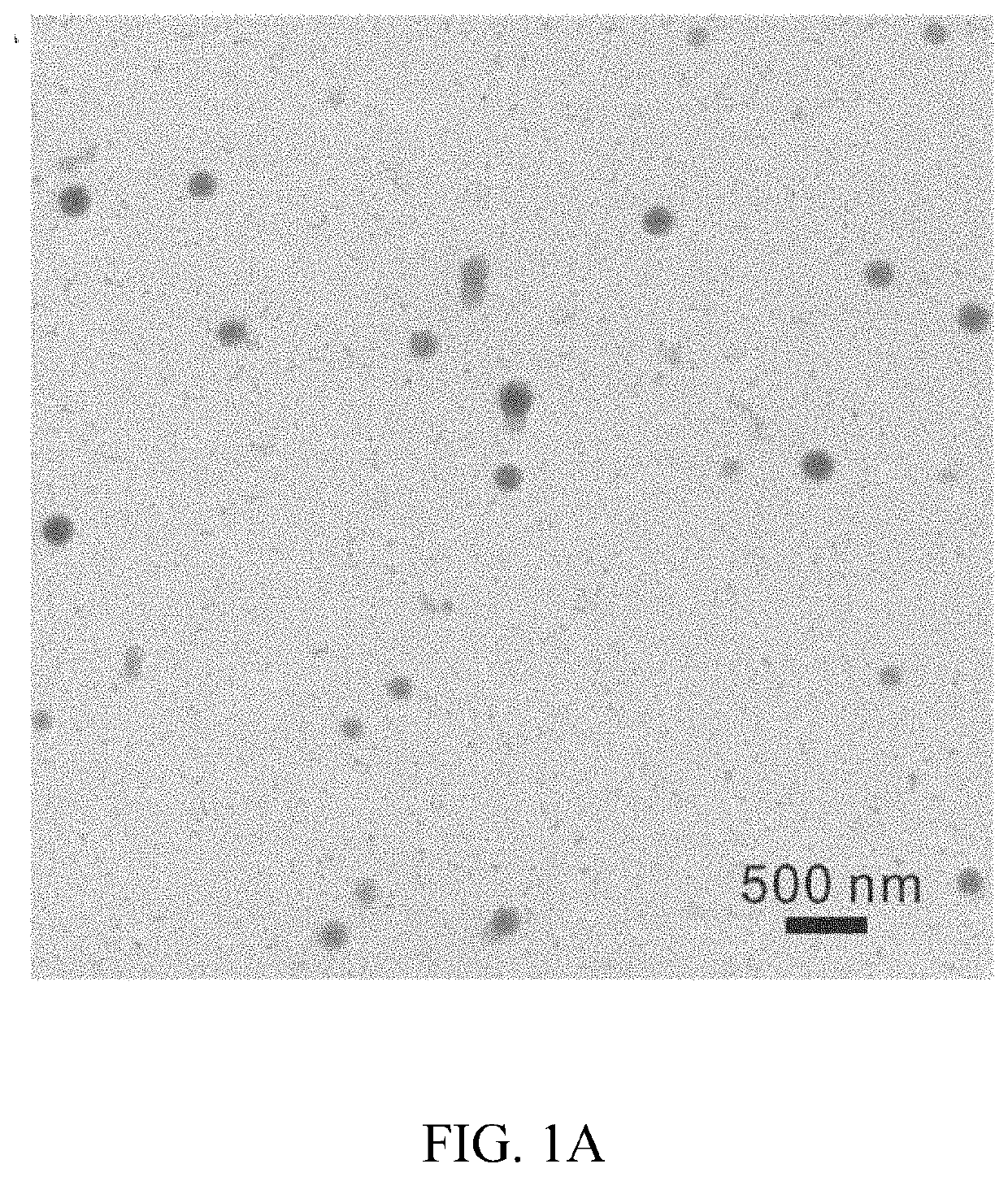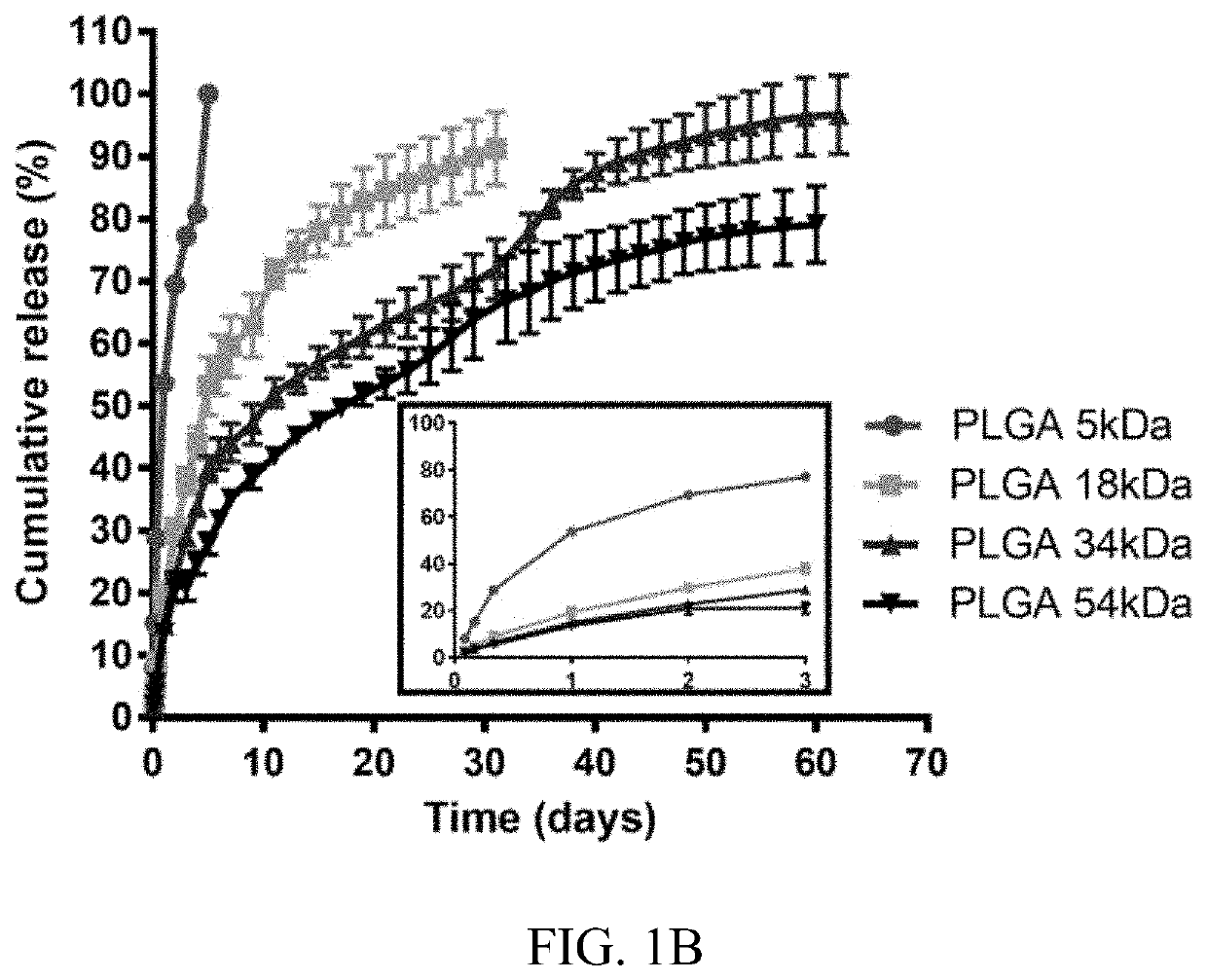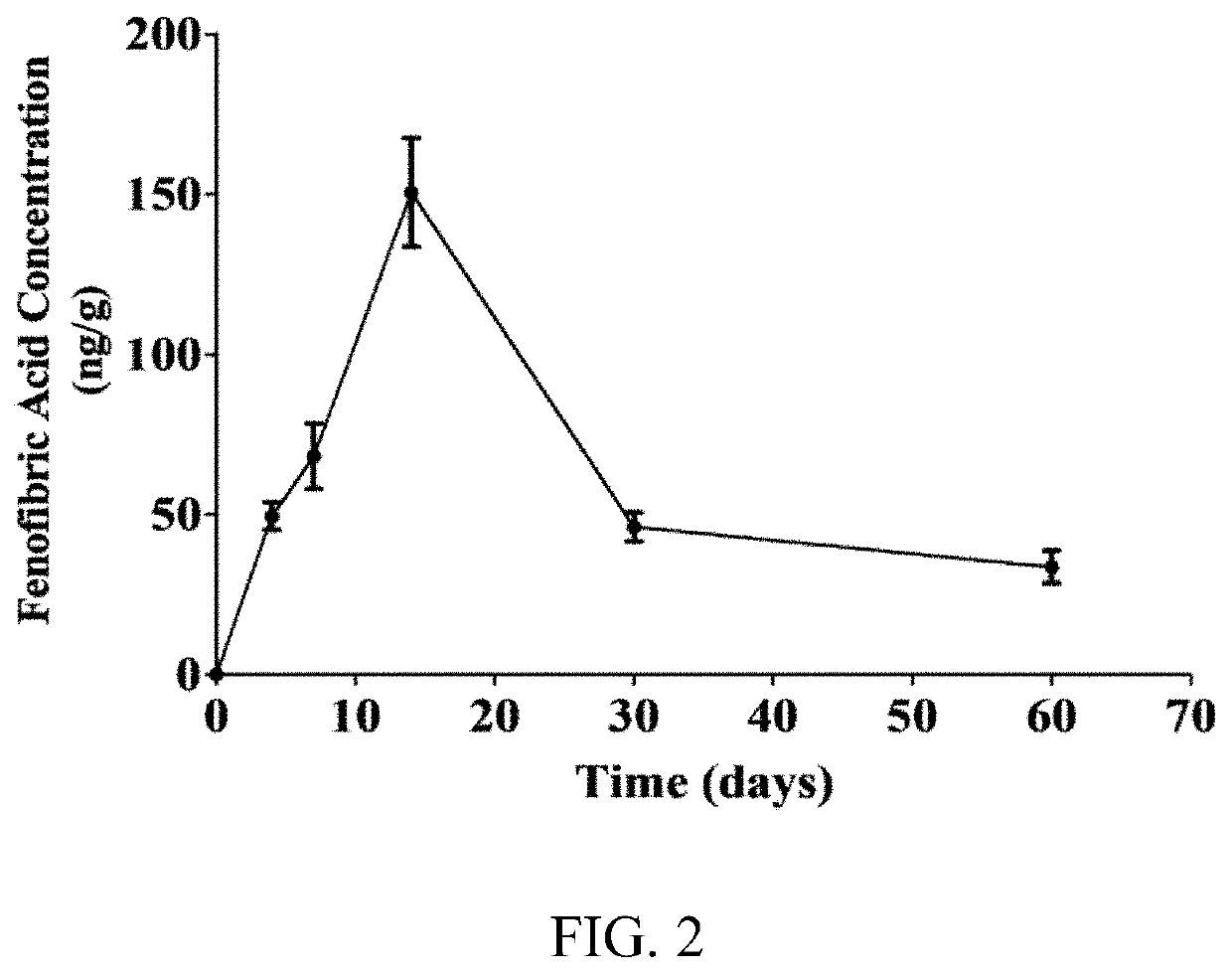PPARa AGONIST COMPOSITIONS AND METHODS OF USE
a technology of agonists and compositions, applied in the field of agonist compositions and methods of use, can solve the problems of unsatisfactory vision-damaging side effects, unfavorable neuronal cell death treatment, and ineffective anti-vegf drugs for all patients, so as to accelerate retinal cell death, short duration of effect, and high cost
- Summary
- Abstract
- Description
- Claims
- Application Information
AI Technical Summary
Benefits of technology
Problems solved by technology
Method used
Image
Examples
example 1
[0094]Nanoparticles comprising fenofibrate and PLGA of various Mw were formulated. Fenofibrate-NPs made of 34 kDa Mw PLGA (Feno-NPPLGA34kDa) with a lactide / glycolide ratio of 1:1, were selected for detailed experimental analysis and demonstrated a drug content of 6% w / w (fenofibrate:PLGA) and a sustained drug release up to at least 60 days in vitro. In one in vivo experiment, rats were given a single intravitreal (IVT) injection of the Feno-NPPLGA34kDa into the eyes with a 30G fine needle. Fenofibric acid drug levels in the eye were sustained for more than 60 days. The efficacy of the Feno-NPs for DR and neovascular AMD was investigated using streptozotocin (STZ)-induced diabetic rats, laser-induced choroidal neovascularization (CNV) rats, and very low-density lipoprotein receptor knockout (Vldlr− / −) mice. Therapeutic effects of the PLGA 34 kDa Feno-NPs were evaluated by measuring electroretinogram (ERG), retinal vascular leakage, leukostasis, CNV size, and retinal levels of vascula...
example 2
[0137]In earlier work, fenofibrate was encapsulated into PLGA NPs that provided more than 3 months efficacy in DR and neovascular AMD after a single IVT injection. Compared with such NPs, microparticles (MPs) possess larger particle sizes that contribute to a drug release sustained for a longer duration. Considering the potential efficacy of PPARα agonist on DR and neovascular AMD, we established a PPARα agonist-loaded microparticle platform that can provide long-lasting PPARα agonist release in the posterior segment of the eye, including for example, fenofibrate MPs and pemafibrate MPs.
[0138]Pemafibrate is a selective PPARα modulator with higher potency and selectivity for PPARα activation than fenofibrate. In cell-based transactivation study, pemafibrate showed high activity in PPARα activation (EC50=0.08 nM) and an extremely subtype selectivity (>5000, >11,000-fold for RRARγ, PPARδ, respectively), making it 2500 times more potent than fenofibric acid (EC50=30 μM for PPARα), the a...
PUM
| Property | Measurement | Unit |
|---|---|---|
| elimination time | aaaaa | aaaaa |
| Mw | aaaaa | aaaaa |
| Mw | aaaaa | aaaaa |
Abstract
Description
Claims
Application Information
 Login to View More
Login to View More - R&D
- Intellectual Property
- Life Sciences
- Materials
- Tech Scout
- Unparalleled Data Quality
- Higher Quality Content
- 60% Fewer Hallucinations
Browse by: Latest US Patents, China's latest patents, Technical Efficacy Thesaurus, Application Domain, Technology Topic, Popular Technical Reports.
© 2025 PatSnap. All rights reserved.Legal|Privacy policy|Modern Slavery Act Transparency Statement|Sitemap|About US| Contact US: help@patsnap.com



